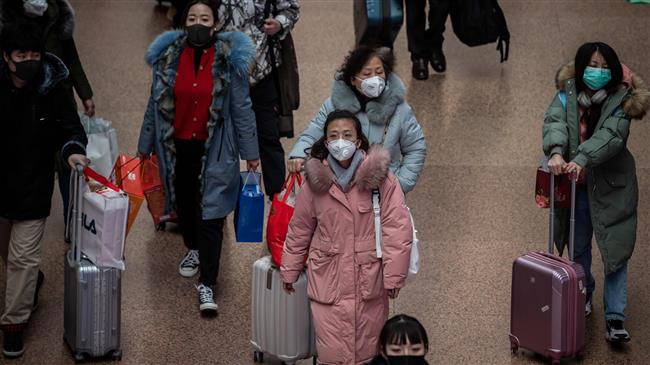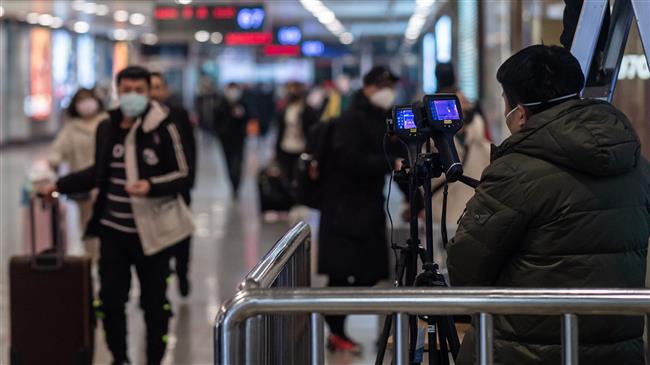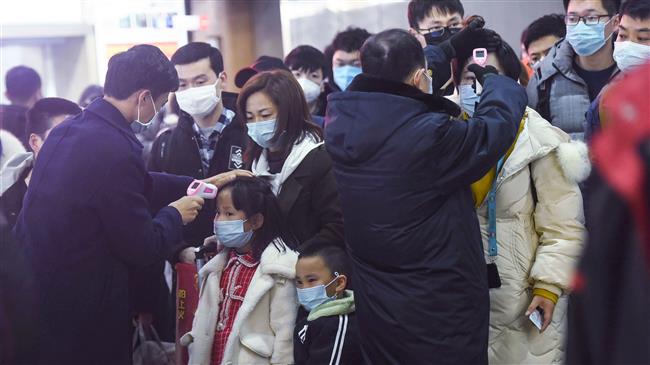China virus toll rises, spurring several countries into action
China is struggling to tackle the outbreak of a mysterious viral disease, which has infected nearly 2,000 people and claimed the lives of at least 56 others nationwide, spurring a number of countries at risk into taking precautionary measures.
President Xi Jinping has admitted that his country is facing a “grave situation.”
“It is our responsibility to prevent and control [the epidemic],” President Xi said at a meeting he chaired to discuss the coronovirus crisis on Saturday.
He ordered all levels of government to “put people’s life and health as top priority” and ordered groups to be sent to Hubei Province, the epicenter of the outbreak, to work directly on the ground.
The never-before-seen virus began to infect people in a seafood and poultry market in the central city of Wuhan, with a population of 11 million people, late last year.
As of Saturday morning, authorities confirmed that the death toll had risen to 56, while 1,975 cases of infection had been listed across the country.
Chinese authorities have banned trade in wildlife in markets and restaurants across the nation. The embargo also includes e-commerce.
According to the China National Radio, schools and universities will for now remain closed.
Officials have so far placed several cities, including Wuhan, under a lockdown in an attempt to prevent the spread of the virus. It has been transmitting nevertheless. Urban transport and outgoing flights have been suspended.
suspended.
On Sunday, the government announced a partial lockdown on the southern city of Shantou, where two cases have been detected.

Health authorities in the capital, Beijing, sent a text message to citizens calling on them to avoid shaking hands and advising them to use a traditional gesture instead.
Global spread
The virus, which is similar to the fatal severe respiratory syndrome (SARS), has crossed China’s borders and infected several people around the world. Nearly 40 people have tested positive across the globe, including four cases in Australia, four in Japan, three in France, and two in the US.
Several people have also been diagnosed with the disease in the Chinese territories of Taiwan, Hong Kong, and Macao.
The South Asian countries of South Korea, Japan, Singapore, Malaysia, and Thailand have also detected cases of infection.
The global scare has driven several countries to adopt measures that would limit the risk of the infection spreading to more people.
In Hong Kong, a state of emergency is in place. Schools will remain closed until February 17. All Lunar New Year celebrations have been called off and Disneyland and Ocean Park amusement centers were shut as of Sunday.
The Chinese community in the French cities of Paris and Bordeaux have canceled the Lunar New Year parades as precautionary measures to keep the disease in check.
Several countries have announced plans to evacuate their citizens from Wuhan.
Japan's Prime Minister Shinzo Abe talked Sunday of a decision "to send back all (Japanese citizens in Wuhan) to Japan if they wish so, by every means including a chartered flight."
The United States said on Sunday that it would relocate its diplomats at its Wuhan consulate in China. The State Department will also offer a limited number of seats to private US citizens on a flight from China to San Francisco on Tuesday.
Canada on Sunday declared the first “presumptive” case of the virus in a resident who had returned from Wuhan. The patient, a male in his 50s, had arrived in Toronto on Wednesday and was hospitalized the next day after developing symptoms of the disease, officials said.
Many airports around the world are screening all passengers on incoming flights from China to counter the threat.
Meanwhile, a study conducted at Imperial College London has suggested that the number of cases may be many times higher than what has been reported.
Former UK ambassador released on bail after arrest in Epstein-linked probe
Hamas condemns Israel’s arson attack on mosque in West Bank, calls for mobilization
Trump's top general warns of Iran aggression risks: reports
VIDEO | US ambassador’s remarks on Israel’s expansion spark outrage
VIDEO | ‘Protect the Right to Protest’ rally held outside London court
VIDEO | Gaza bakery supports displaced families ahead of Ramadan Iftar
France blocks US ambassador from ministerial meetings after summons no-show
Around 20 nations condemn Israeli push toward West Bank annexation












 This makes it easy to access the Press TV website
This makes it easy to access the Press TV website